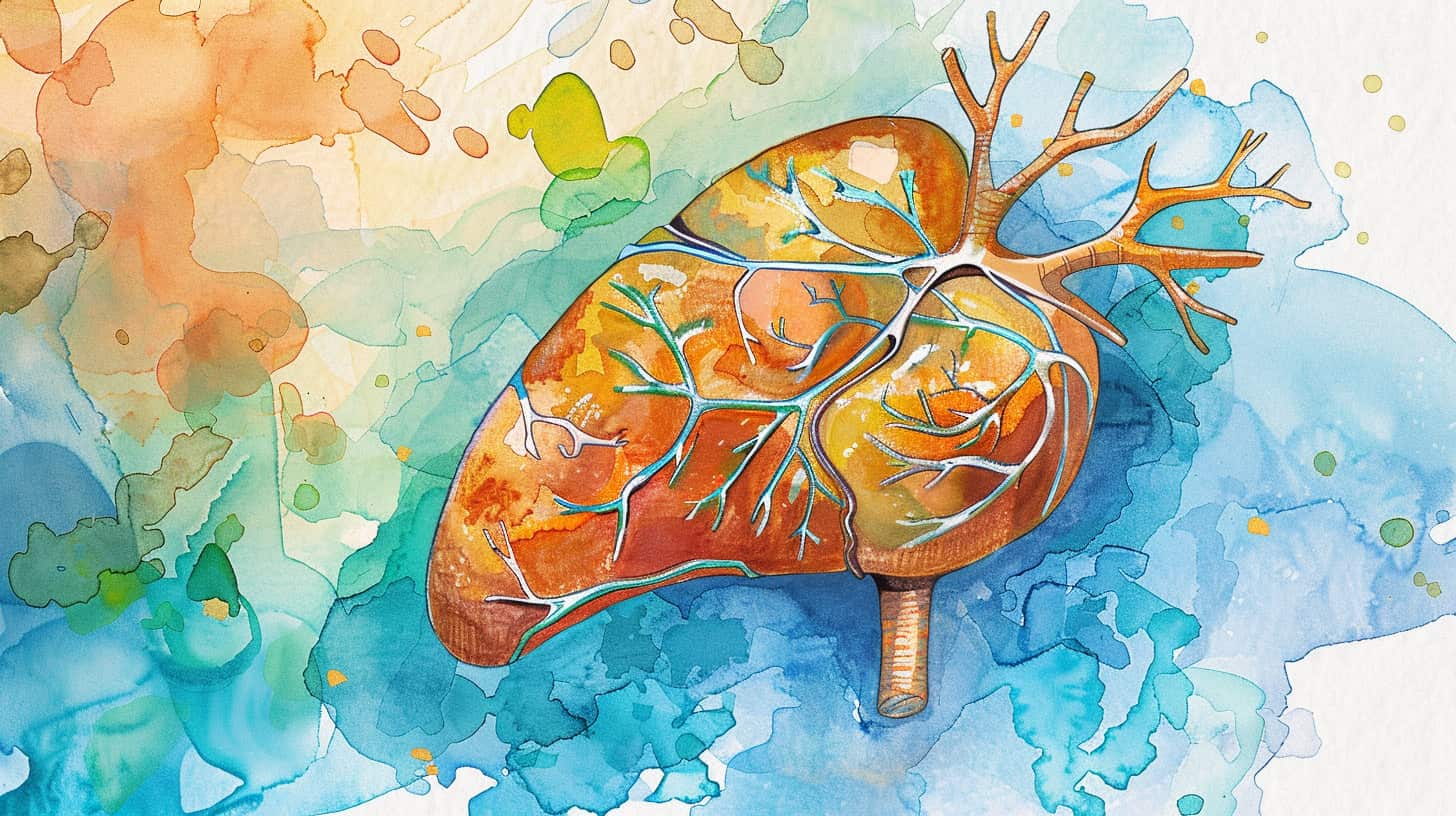Anything sound familiar here: it starts with the seemingly benign routine of unwinding with a drink or two after work—or maybe going out with friends on a semi-regular basis. As time moves on, those one or two drinks begin to feel less like a choice and more like a necessity. The signs of liver damage from drinking could start even here.
Then you feel it. At first, the changes are subtle, almost dismissively so—a lingering sense of fatigue that no amount of sleep can shake off. Mornings feel heavier, and the mirror shows a worn-out version of you—a little more sallow, with eyes that hint at a jaundice yellow. Are these early the signs of liver damage from drinking?
What Is Liver Disease from Drinking?
Liver disease from drinking, medically known as alcohol-related liver disease (ARLD), is a silent yet dangerous result of heavy drinking habits. The liver, a remarkable organ with the ability to regenerate and perform over 500 vital functions, is not invincible against constant alcohol use. ARLD unfolds in stages—from fatty liver (steatosis), to alcohol hepatitis, and finally, to the irreversible scarring known as cirrhosis. This progression paints a picture of a body struggling to maintain equilibrium in the face of persistent disruption.
The Science of What Alcohol Does to Your Liver
When alcohol enters the body, it’s the liver’s job to process it, breaking down the alcohol molecules. It does this to protect you from their poisonous effects. However, this process is complex and is not completely “clean.” The metabolism of alcohol produces acetaldehyde, a toxic compound that can damage liver cells and lead to inflammation and scarring (fibrosis). Over time, heavy drinking can overwhelm the liver’s repair mechanisms. This leads to a buildup of fat within liver cells, inflammation, and eventually, scarring.

Recognizing the Signs of Liver Damage from Drinking
Recognizing the Signs of Liver Damage from Drinking involves paying attention to the signals. You might feel okay, but your liver might be crying out. The progression from subtle to severe symptoms reflects the liver’s increasing struggle to perform its vital functions. Here’s an expanded list of signs of liver damage from drinking, providing more detail and insight into what a person may experience, along with insights on when to suspect liver disease might be linked to alcohol consumption:
Early Signs:
-
- Fatigue and Weakness: Persistent tiredness, not relieved by rest.
- Loss of Appetite: Leading to weight loss and nutritional deficiencies.
- Nausea or Vomiting: Occasional discomfort that might seem unrelated to eating.
- Mild Abdominal Pain: Especially in the upper right side, where the liver is located.
Intermediate Signs:
-
- Jaundice: Yellowing of the skin and whites of the eyes, caused by the buildup of bilirubin.
- Swelling in the Legs and Abdomen: Known as edema and ascites, respectively, due to fluid buildup.
- Bruising Easily: Due to the liver’s impaired ability to produce blood clotting factors.
- Itchy Skin: Caused by bile salts accumulating under the skin.
Advanced Signs:
-
- Confusion or Altered Mental State: Known as hepatic encephalopathy, resulting from the liver’s inability to remove toxins from the blood.
- Spider Angiomas: Small, spider-like blood vessels visible under the skin.
- Dark Urine: Caused by the excretion of bilirubin through the kidneys.
- Pale Stool Color: Due to a lack of bile production.
When to Suspect Liver Disease from Drinking:
-
- Consistent Heavy Drinking: For men, this is typically defined as consuming 15 or more drinks per week. For women, it’s 8 or more drinks per week.
- Binge Drinking Patterns: Consuming a large amount of alcohol in a short period, leading to intoxication.
- Duration of Alcohol Use: Long-term alcohol consumption increases the risk significantly.
- Family History of Liver Disease: Genetic factors can play a role in susceptibility.
- Other Health Conditions: Existing conditions like obesity, diabetes, or viral hepatitis can compound the risk.
If you or someone you know is experiencing these symptoms, get help today. Early intervention can prevent further damage and possibly even reverse the effects of alcohol on the liver (more on this below). The journey from recognizing these signs to seeking help is a critical step towards healing and recovery.
Does Drinking Permanently Damage Your Liver?
This one is not exactly straight forward. Good news? The liver is great at regeneration. Bad news? This ability has its limits. The extent of the damage and its reversibility are tied to several factors: the amount and duration of alcohol consumption, individual health conditions, and when the intervention occurs.
Early stages of liver damage, such as fatty liver, can often be reversed with abstinence and lifestyle changes. However, once liver damage progresses to cirrhosis, the damage is largely irreversible, marking a critical point.
Abstinence from alcohol is the cornerstone of any recovery plan, supported by a healthy diet, regular exercise, and medical supervision. For those at more advanced stages, the focus shifts to managing symptoms, preventing further damage, and in some cases, considering liver transplantation as a final recourse.
What to Do if You Have Signs of Liver Damage
The liver has both tremendous resilience and vulnerability; it’s a reminder of the delicate balance our bodies work to maintain in the face of life’s complexities.
If you or someone you love is struggling with alcohol consumption and its impacts, including liver disease, remember, healing is possible. Covenant Hills Treatment is here to guide you through reclaiming the story of your life, offering a sanctuary for healing, understanding, and renewal.
Embrace the possibility of a future defined not by the past, but by the resilience and strength of the human spirit. Take the first step towards a new beginning. Contact Covenant Hills Treatment today and discover how your story of recovery can begin. Call us today: 800-662-2873.








